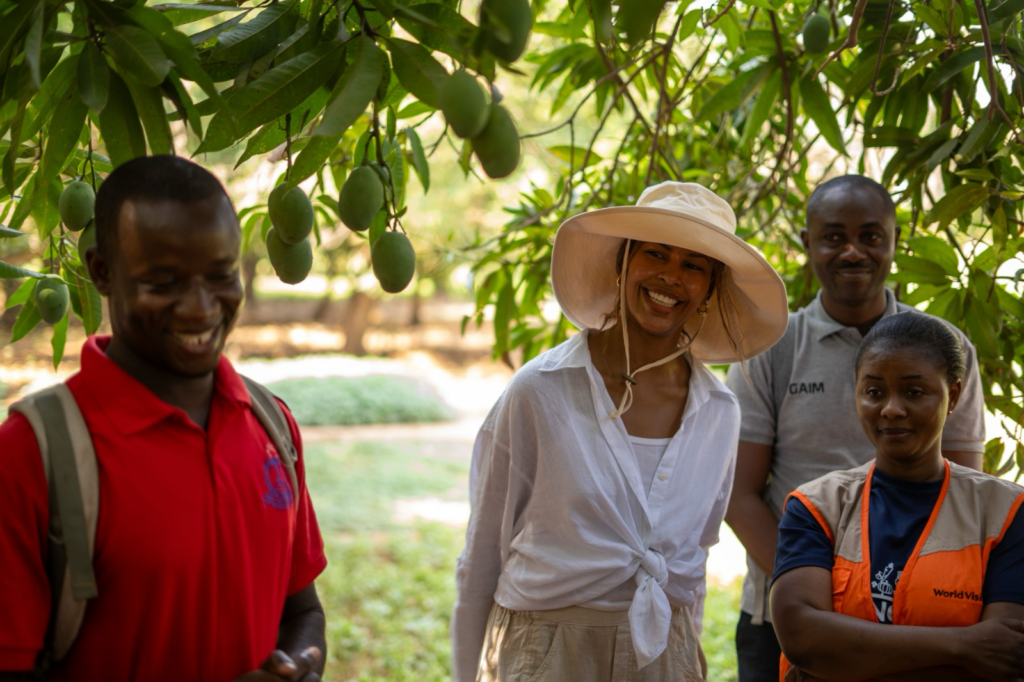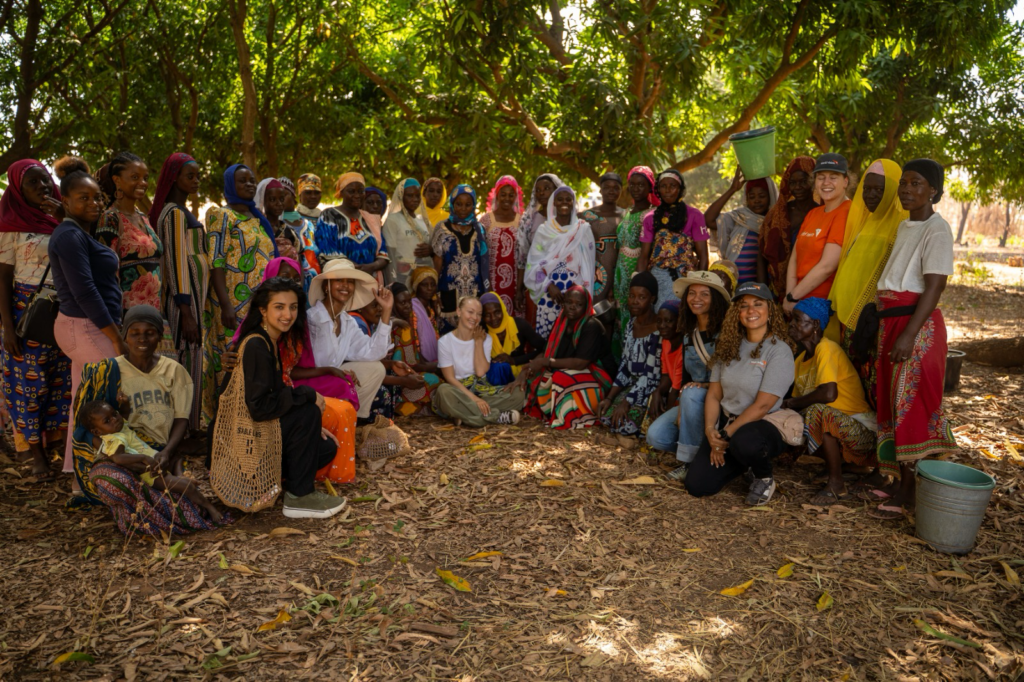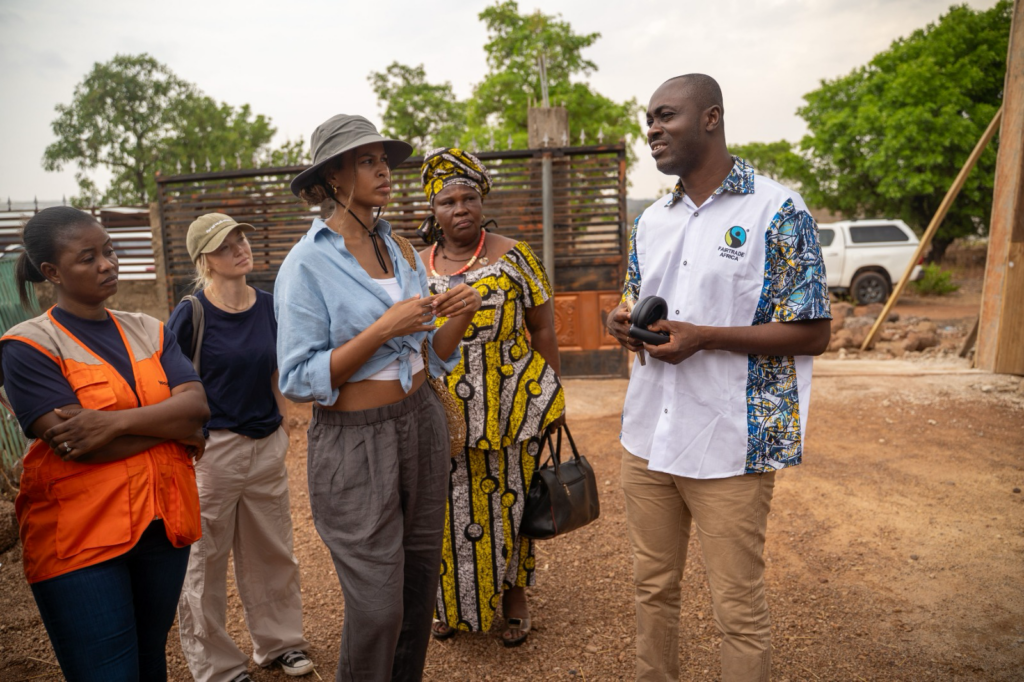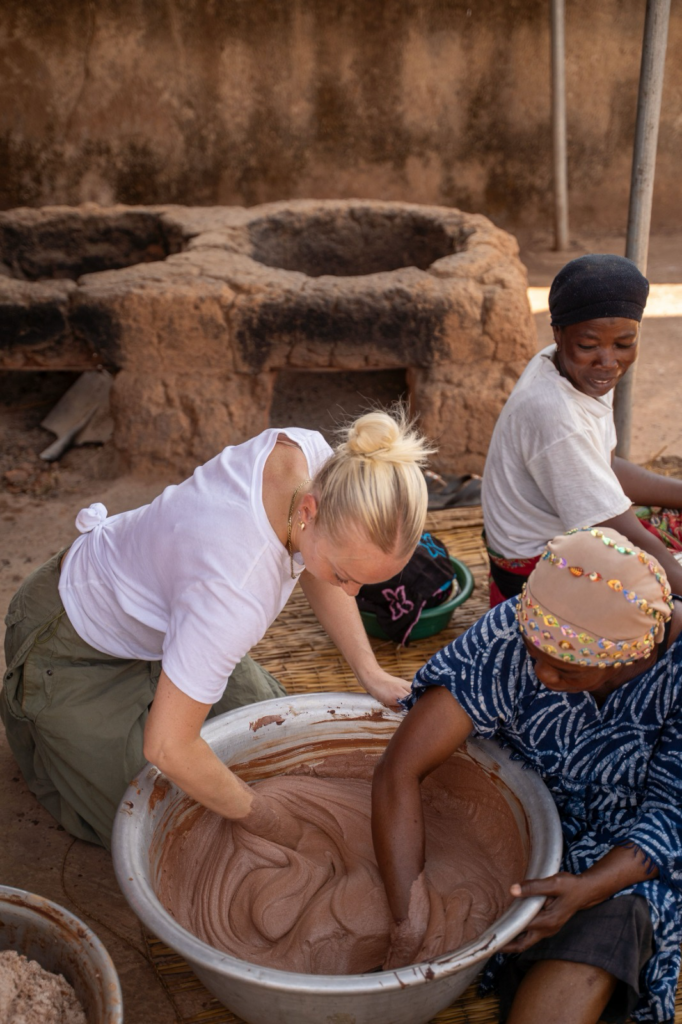Sabrina Dhowre Elba, actor, entrepreneur, philanthropist, and Goodwill Ambassador for the United Nations International Fund for Agricultural Development (IFAD), has long been a passionate advocate for sustainable development, women’s empowerment, the agricultural value chain and ethical sourcing.
In her latest effort, Sabrina travelled to Northern Ghana, in collaboration with World Vision International, where she learnt firsthand about Women’s Shea groups and their efforts to promote sustainable practices.
She also learnt about the role of Fair Trade, helping producers in developing countries to achieve sustainable and equitable trade relationships.

Sabrina’s visit to Ghana was part of a broader partnership between S’ABLE Labs, the skincare brand she co-founded, known for its commitment to wellness, sustainability, and ethical business practices and World Vision.
Through this collaboration, Sabrina hopes to amplify messages about the benefits of sustainable and ethical sourcing as a way of empowering communities to thrive.
A Shared Mission: Empowering Communities through Ethical Sourcing
World Vision has been at the forefront of humanitarian work, with 75 years of global work and 45 years in Ghana.
The organisation’s mission is to tackle the root causes of poverty and injustice, focusing on children, families and communities, helping them to reach their full potential.
By working with local partners like Fairtrade and S’ABLE Labs, World Vision ensures that Women’s Shea Processing Groups have access to essential resources and that their contributions are valued in global supply chains.
“We believe in the power of communities,” said Sabrina Elba during her visit.
“Through our partnership with World Vision and Fairtrade, we can create a space where people not only benefit from ethical sourcing but where their work and culture are uplifted on a global stage.

“We are committed to supporting the incredible women who are the backbone of agricultural production in this region.”
In Gbumgbum Yemo, Sabrina observed the manual Shea production process.
Shea butter, a staple in many wellness and beauty products, is harvested by local women’s groups who have been integral to preserving the tradition of shea harvesting for generations.
Here, Sabrina engaged with the women involved in the process, learning about their challenges and, at the same time, ways to preserve the indigenous method of shea production.
Fairtrade Certifications: Empowering the Producers
Another highlight of Sabrina’s visit to communities in Northern Ghana included learning about Fairtrade certification in Malishegu, where Women’s Shea Processing cooperatives are benefiting from the certification system that ensures they receive a fair price for their product and invest in their community’s development.
These certifications help empower the local workforce, particularly women, by ensuring they receive equitable pay and can reinvest in their families and villages.
“Fairtrade is not just about profit,” said Sabrina.

“It’s about ensuring dignity, fairness, and sustainable livelihoods for the people who grow the ingredients we all love to use. By supporting ethical sourcing, we help create opportunities that lead to lasting change.”
Mechanized Shea Butter Processing: A Step Towards Efficiency
Sabrina also visited Bugulung, where she learned about mechanized shea butter processing. While many women in the region still process shea manually, mechanisation is helping increase production efficiency, improving both the quality and quantity of the shea butter produced.
World Vision’s support for these women’s groups has been instrumental in providing them with the necessary equipment and training, which has led to improved economic outcomes and better health and education opportunities for their families.
The mechanisation of Shea butter production has the potential to revolutionize the local economy, helping women earn more and giving their children better access to education and healthcare.
Sabrina’s advocacy for environmental sustainability also aligns with World Vision’s ongoing efforts to help communities adapt to climate change, which is increasingly threatening agricultural livelihoods.
Bridging the Gap Between Consumers and Producers
This partnership between S’ABLE Labs and World Vision is not just about product development – it’s about connecting consumers to the real stories behind the products they buy.
By showcasing the impact of ethical sourcing and the direct benefits it brings to communities, the collaboration aims to avoid traditional influencer marketing that often promotes overconsumption.
Instead, Sabrina and World Vision are focusing on immersive storytelling, using authentic visuals and narratives to share the realities of women’s groups in Northern Ghana and the critical role fair trade plays in their success.
Through her platform and the support of sustainability influencers, Sabrina is bringing attention to the importance of ethical sourcing and the human impact behind every purchase.

“It’s not just about buying a product. It’s about supporting people, cultures, and communities that deserve to be seen and heard.”
Looking Ahead: A Holistic Approach to Well-Being
This partnership is a critical step in furthering S’ABLE Labs’ mission to not only provide sustainable, ethically sourced wellness products but also to raise awareness about the importance of supporting fair trade practices.
Through World Vision’s network and the tireless work of local communities in Ghana, Sabrina believes that more people will recognise the value of making purchasing decisions that support sustainability, dignity, and empowerment.
As she wraps up her trip, Sabrina’s message is clear: “We are all interconnected, and the choices we make can have a lasting impact on communities far beyond our own.
“Ethical sourcing is not just a trend—it’s a responsibility we all share. Through partnerships like this, we can create a more sustainable, just, and inclusive world.”
This collaboration underscores the power of community-led solutions and highlights the role of ethical business practices in creating a more sustainable future.
Through such initiatives, the potential for positive global impact is limitless.
DISCLAIMER: The Views, Comments, Opinions, Contributions and Statements made by Readers and Contributors on this platform do not necessarily represent the views or policy of Multimedia Group Limited.





